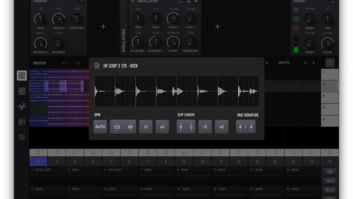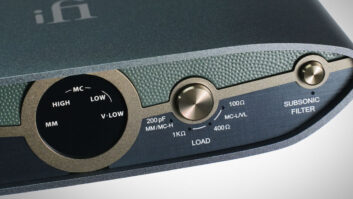New York — The music industry is pressing consumer electronics suppliers to incorporate a “time-out” feature in future time-shifting digital satellite radios, according to Samsung.
Presumably, the music industry will demand a similar feature for any time-shifting HD Radio (digital AM/FM) tuners that might be developed in the future.
The Recording Industry Association of America (RIAA) declined to comment, but in an e-mail survey of consumers, Samsung cited “a recent push by the recording industry” to make time-shifted satellite radio content on planned flash-memory MP3 players “expire” on the player 90 days after it is recorded. The survey also said that “this ‘expiration’ could be avoided by transferring the recorded content to your personal computer for an additional cost, but if the fee is not paid, the content on the player would become permanently inaccessible after 90 days.”
The survey coincides with a renewed push by the music industry to control copying of digital satellite and HD Radio (digital AM/FM) broadcasts and with the growing memory capacity of planned portables that would play time-shifted satellite radio content. As an RIAA spokesman previously told TWICE, “We’re trying to prevent cherry picking and library-ing that turns a passive listening experience into an interactive download service, no matter what the platform.’’
The Samsung survey also coincides with the postponement by Samsung and Dell of headphone MP3 players that would store blocks of time-shifted XM Satellite Radio broadcasts. The Samsung units were supposed to store user-selected satellite songs for later recall by title, treating the satellite songs much like any other compressed music file. Samsung and Dell shipments were pushed back to the first quarter of 2006 from the fourth quarter of 2005.
Dell and Samsung used almost identical language in explaining their delays. A Dell spokeswoman said her company “has decided to extend its development cycle.” A Samsung e-mail to employees from Thomas Rhee, new business development VP, said the company “extended the development period” of its two planned devices. Neither company offered additional comment.
For its part, Sirius is encountering “no real shipping delays” for an S50 headphone MP3 player that stores time-shifted Sirius content and allows for playback of time-shifted satellite songs by title, artist, and genre, a spokesman contended. Previously, however, Sirius said shipments would occur in late October or early November, and now the spokesman is saying the S50 will be “available in time for the holidays.”
Although “we’re talking to them [the RIAA],” the Sirius spokesman said, “Clearly that [copyright] is not our issue.” The S50 “is a legal product” that complies with the 1992 Audio Home Recording Act, he said. “We carefully designed it to comply with existing law.”
Likewise, XM’s VP Brian Shea said the planned Samsung devices “fall within the [regulatory] guidelines” and that the music industry hadn’t expressed concerns about XM2go headphone stereos. XM2go portables don’t sort stored satellite songs by title, artist or genre, although users can skip past individual songs. The Samsung devices, in contrast, allow for playback of time-shifted satellite songs by metadata.
Shea cited multiple copy-protection safeguards in the Samsung and XM2go devices, including the locking of satellite content onto internal non-removable memory and the lack of digital outputs. As a result, music can’t be transferred in digital form to other devices. In addition, the time-shifted content in XM2go devices is overwritten on a first-in, first-out basis. It was not clear whether the delayed Samsung and Dell devices would have offered the same overwriting capability.
Growing memory capacity and the ability to time-shift multiple sessions, however, might be raising red flags with the music industry. The XM2go devices, for example, time-shift in two sessions, and content stored in one session could remain indefinitely in an XM2go device, a spokeswoman for XM2go supplier Tao said. The Sirius S50, which overwrites content on a first-in, first-out basis, can make up to 10 scheduled recordings, for up to a total of almost 40 hours, with additional storage set aside for a feature that automatically stores content from the user’s three favorite channels.
In addition, the XM2go devices store only up to five hours of XM programming on 128MB of memory, but the time-shifting MP3 players planned by Samsung and Sirius offer much greater capacity: 1GB for the Sirius S50 and 512MB and 1GB for the Samsung devices. With 1GB of capacity, the S50 stores up to 50 hours of Sirius content. With such storage capacity, the music industry might be concerned about when temporary storage can effectively become permanent.
The S50 also offers the ability to store up to 750 songs on an individual basis and store them indefinitely if the user chose not to free up memory for additional time-shifting. It would work like this: After recording up to 10 separate blocks of programming, users listening to each block would be able to view artist, title and genre information as a song is playing but not be able to select individual songs for playback. As the songs are played, however, consumers can opt to save each song as they listen to it. The songs would then be selected for playback by metadata.
The S50’s suggested retail was reduced to $329 from $359, including car docking station, and Sirius announced that a $50 rebate will be offered through Dec. 31.
Details of Dell’s devices were unavailable, but they were expected to include higher capacity hard disk drives.













